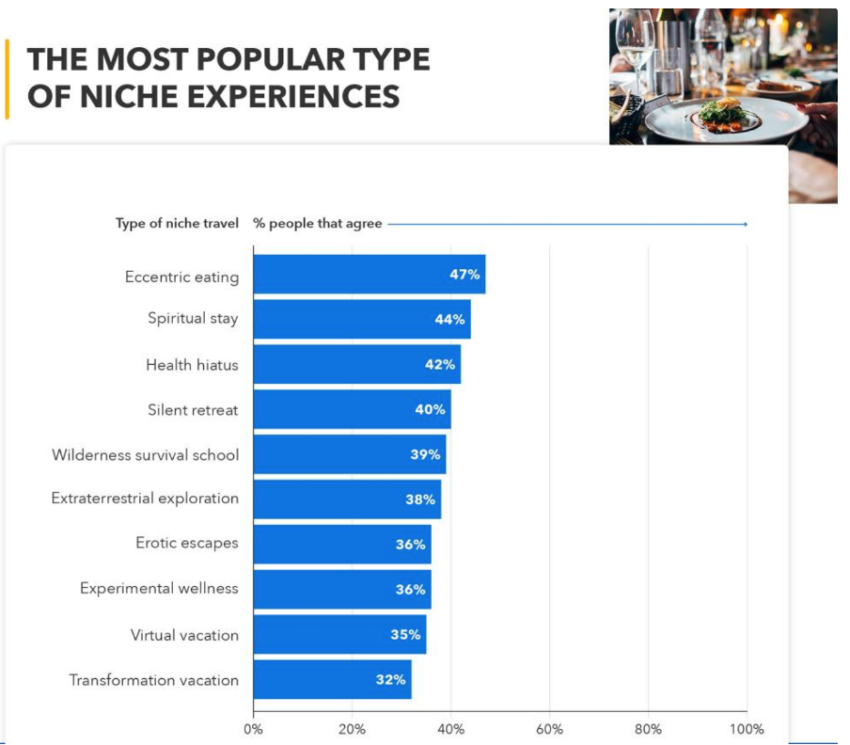Can an evolving metaverse help boost the travel industry as the world progresses post-COVID? The metaverse has real-world advantages for potential travelers to roughly explore options before they actually pack their bags. But there is still some doubt of veterans.
The COVID-19 pandemic has been a difficult time that has forced many to remain confined to confined spaces. Unsurprisingly, the travel industry was one of the hardest hit sectors during this period.
But now, with most restrictions lifted, domestic and international travel has resumed in most parts of the world. Now, travelers are exploring options for celebrating Christmas and New Year’s, looking forward to ending the year on a positive note.
Now, technology like virtual reality and augmented reality are being used to allow travelers to explore potential destinations virtually. In 2022, Meta head Mark Zuckerberg has been touting this “metaverse” idea wildly as a way to transform the travel industry and improve work life off-site.
The metaverse is considered by some to be the cornerstone of the next evolution of the Internet, commonly referred to as “web3”. It aims to create more immersive experiences using Virtual and Augmented Reality (VR and AR). These technologies are already beginning to penetrate the travel industry. It is now possible to wear headphones and travel anywhere in the world, without trains, no planes, no lines, and no passports.
This allows travelers to “try it before you buy it”. Anantara Dhigu Resort located in the Maldives, one of the most touristic places, offers clients the opportunity to do just that Practically explore Their hotel room options from anywhere in the world.
Many other hotels and resorts are jumping on the bandwagon, too. For example, Anantara Grand Krasnapolsky Hotel Amsterdam join RendezVerse is on a web3 development journey to transform meetings and events into a virtual environment.

Metaverse operations in flight
In addition, some travel agents have encouraged travelers to book travel in virtual reality, allowing customers to book flights or hotel stays in a virtual reality world through platforms such as Amadeus And the Skinav.
Speaking to BeInCrypto, COO of Skynav Ty Downing He highlighted three key areas of how the metaverse can enhance the travel experience. First, the virtual sales and reservations discussed above. So here, the COO focused on the “try before you buy” narrative. The second is to enhance customer service, he said:
“(Metaverse) offers many ways to interact with customers, employees, and businesses. Consider the possibility of closing a deal from your home office, or better yet, consider how the Metaverse can help you understand your traveler behavior. Your customer may want to use the Metaverse while they’re on vacation. They may want to visit the store to buy a product, book a return flight, or maybe talk to their kids.”
Finally, the technology can also act as a real-time guide. Furthermore it, providers Many airlines are now offering in-flight entertainment in virtual reality. Currently, this is usually only found in Business Class and First Class. But, it will likely become the norm as costs become more manageable. Anyone who is afraid of flying can now be in a completely different world for the duration of the flight.
What do travelers want to do in 2023?
One of the largest travel agencies, Booking.com, participated at the end of the year Transfer With BeInCrypto. The agency surveyed 24,179 respondents in 32 countries and found that many travelers were keen to explore “virtual vacations”.
Virtual reality technology has not yet developed to the point where travelers can take “real life” tours. However, it can offer tourists a glimpse of what they can expect to experience. According to the study, 43% are open to using VR to inspire their travel choices, while 46% said they would be more likely to travel to a place if they could experience the place in VR first.

Many even expressed their enthusiasm for spending several days inside the Metaverse. 35% revealed that they would take a multi-day AR or VR trip. The report explained:
With the advancement of haptic feedback technology, virtual travelers will soon be able to feel the sand between their toes and the sun on their skin without even having to go outside.”
On the other hand, most vacationers would still agree that virtual tours are not as attractive as being in the real place. The concept around this technology remains a niche sector. It will likely take years for it to develop and spread. The metaverse sector has already been shut down Rough start Due to its connections to cryptocurrency and virtual asset markets.
however, comp In the luxury fashion The merchandise and music industries are already trying to capitalize on the metaverse in their products and events.
Disclaimer
All information on our website is published in good faith and for general information purposes only. Any action taken by the reader regarding the information on our site is at his own risk.
Originally posted 2022-12-23 13:59:16.
